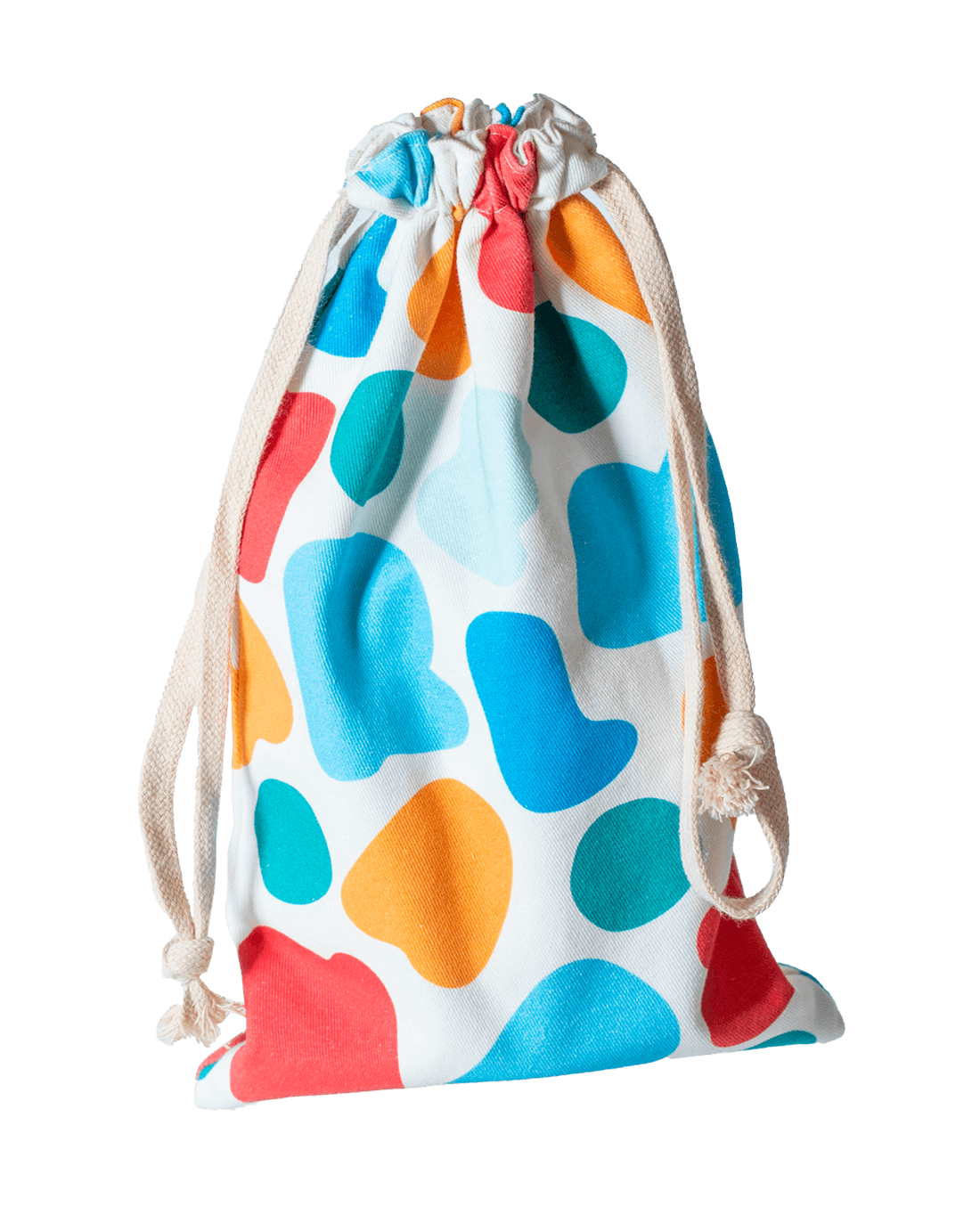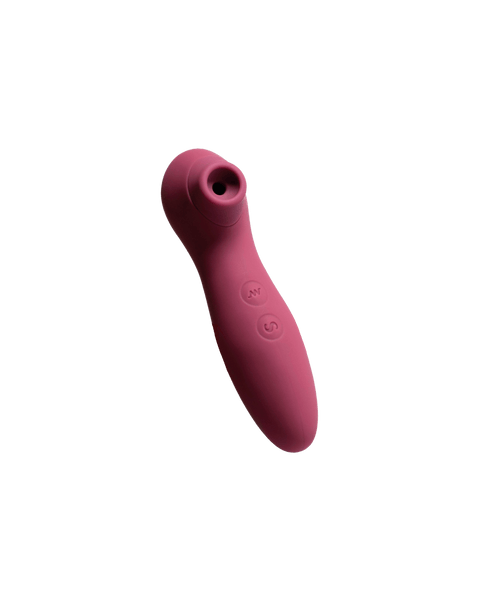Here at NORMAL, we worship at the altar of lubricants.
Lube, short for "lubricant", is the unsung hero of good sex, the often-forgotten super tool needed in any sex-positive person's arsenal.
Not only can it take your sexual pleasure to higher levels with deeper penetration, but it can also be vital for your body's safety.
But, finding the right lube for your body and your sexual needs can be a minefield, so we will attempt to answer all your pressing needs on what a lubricant is, how to use it and when to use this magical, slippery, sexy gift.
What is lubricant?
To get technical, a "lubricant" by definition is a substance that helps to reduce friction between surfaces in "mutual contact". And as we know, sex and masturbation need friction to create pleasure.
People with vaginas will have a level of natural lubricant that is triggered into action upon arousal, but for a variety of reasons, this can sometimes not be enough. Without adequate natural or applied lube, sex and masturbation can become painful.
Lube is a liquid or gel that works to ease friction during sex. It also minimises irritation, especially if you have sensitive skin. Lube is useful for any kind of sex: vaginal sex, clitoral and vaginal masturbation, masturbation with a penis, sex toy play with or without a partner and anal sex.
Lubricant use in sex has been on people's radar for centuries. There is evidence as early as 350 B.C.E. that the Ancient Greeks used olive oil as a lubricant. The Ancient Greeks were known for their sex positivity and for embracing and normalising homosexual relationships, so it's no wonder they came up with innovative ways to get it on.
Nowadays of course, you can find a huge range of personal lubricants on the shelves of any sex shop, online store, chemist or even supermarket.
Why use lubricant?
Using a lubricant will enhance your experience of sexual intercourse, masturbation and, especially, anal sex. Here is a list of reasons why you might want to go lube shopping.
Vaginal dryness
Usually, the more time and energy you invest in foreplay for vaginal sex, the more the body will produce a natural lubricant, creating a lovely, moist area ready for penetration or clitoral stimulation.
But sometimes, the effort and time you put into creating a fun, exciting and arousing foreplay session before sex will not create the natural lubricant you're looking for.
Vaginal dryness is a common condition that often occurs in response to hormonal changes, especially during menopause, breastfeeding, when taking certain anti-estrogen medications and just before and after your menstrual cycle.
Things can get dry when you're stressed, using harsh and perfumed soaps around the vulva and vagina and even if you're regularly taking antihistamines.
Dryness is the opposite of what you want during sex; creating friction without applied or natural lubrication will lead to pain, irritation and general discomfort.
Vaginal dryness is common and nothing to be ashamed of; lube was created exactly for this reason, to help the sexual process along even when the body won't produce enough natural lubrication.
Anal sex
OK team, this one's important. Here at NORMAL, we love anal play, anal sex and all things butt-focused.
But, we cannot stress this enough: lube is vital for anal sex. This is because the anus does not produce any natural lubricant at all — it is not like the vagina.
A lack of lubrication during anal sex can cause pain, irritation and even anal tearing, which can lead to bleeding and bacterial infections. In turn, this can lead to a higher risk of STI transmission.
Anal sex is totally safe, and can be extremely pleasurable, but not without lube.
Erectile dysfunction
Erectile dysfunction is extremely common and is an issue that can affect men of all ages.
There are some suggestions that applying lube to an erect penis can actually heighten arousal and lead to longer erections, although more clinical research needs to be done in this area.
How many types of lube are there?
There are a number of different types of lube and each style serves a slightly different purpose. Here's what you need to know about each type.
Water-based lubricant
Water-based lubes are extremely popular for all kinds of sex, for all the right reasons. NORMAL's Water-Based Lubricant, for example, is scent and taste-free, doesn't cause stains and is much less likely to cause irritation to the skin.
It's also the best lube to use with latex condoms as it won't cause latex corrosion and lead to condom breakage.
What's more, water-based lubes are the safest to use with silicone sex toys. Comparatively, Silicone-based lubes can break down the surface of silicone sex toys, potentially ruining your vibrators and dildos.
Water-based lubes are ideal for almost all sexual situations, from penetrative sex to anal sex. One of the few downsides of water-based lubes is they are not ideal for shower, bath or sex in the water simply because it washes off easily.
It's also important to note that water-based lubes will also often need to be reapplied during sex as it doesn't last as long as silicone or oil-based lubes. But, a second or third application of lube is no big deal and it's easy enough to incorporate this into your foreplay!
[[--product:water-based-lube--]]
Silicone-based lubes
Silicone-based lubricants, on the other hand, are made from 100 per cent artificial substances. NORMAL's Silicon-Based Lubricant is made with just two ingredients — dimethicone (a commonly used ingredient in skincare and haircare products that creates a silky finish) and cyclopentasiloxane (a colourless, odourless and non-greasy ingredient used commonly in cosmetics).
Both are usually safe for all skin types, but it's a good idea to patch test on your arm before lathering it around any genitals.
Silicone-based lubricants have an extra slipperiness to them, meaning they last longer than water-based lubes, which makes them a great option for people with severe vaginal dryness, those with a history of painful sex or those wanting to try anal sex.
There is a common misconception that all silicone-based lubes are greasy, but this isn't necessarily true — NORMAL's two-ingredient lube won't leave a sticky residue. However, it's a good idea to put a towel down if you're worried about staining your sheets.
Silicone-based lubes are also safe to use with latex condoms and won't cause breakages.
As we mentioned earlier, one downside to silicone-based lube is that it can deteriorate the surface of silicone toys, creating abrasions in the material where bacteria can grow. Water-based lube is much safer for your sex toys as it won't cause corrosion.
[[--product:silicon-based-lube--]]
Oil-based lubes
Oil-based lubes come in two different forms. One is natural — like coconut or olive oil — and the other is synthetic such as petroleum jelly or mineral oil. Oil-based lubes are usually runnier than their silicone or water-based counterparts, making them ideal for a sexy massage during foreplay.
We don’t recommend making your own lube at home or using food or cosmetic products as a substitute. These substances aren’t designed to go in or on your genitals, and they can cause infections or reactions.
Just because many oil-based lubes are considered "natural", they can still degrade condoms and have other unwelcome consequences for your body including yeast infections.
Over-the-counter oil-based lubricants are known to cause condom breakages as the oil can corrode the latex, which is why oil-based lubes have somewhat fallen out of favour.
On the flip side, oil-based lubes are totally fine to use with polyurethane condoms.
Oil-based lubes are also usually the messiest too and the clean up can be a little bit of a nightmare. Popping a towel down and ensuring you're keeping the oil on your skin can help with this.
How to pick a lubricant
As you can see, choosing a type of lube for you depends completely on your sexual needs.
If you're wanting to engage in sexy massage, an oil-based lubricant might work for you. If you're wearing condoms or using sex toys, opt for a water-based lube. If you're looking to last without much reapplication, a silicone lubricant is what you're looking for.
Picking a lubricant will also depend on what a vulva and vagina will be sensitive to. It's a real vibe killer when you lather your vagina and vulva with a nice, new lubricant, only to discover it will make you itch, turn red, cause pain and turn into vaginal infections.
You can also find some hybrid lubes on the market, which combines water and oil or water and silicone into one single lubricant product, should that be up your alley.
What's the best lube for oral sex?
Sometimes, oral sex can feel like an endurance test, but lube can be your friend when going down on a partner.
Flavoured lubricants exist to make the experience more pleasurable, but ensure you patch test all lubes before use — especially flavoured varieties.
Certain flavoured lubes can contain perfumes and chemicals that can irritate the skin, especially around the vulva and vagina. Ingesting a small amount of water-based lube will not cause you any harm, but it's also important to ensure you're not swallowing too much.
Is there a lube for couples trying to conceive?
Yes! Fertility lube is becoming more mainstream as people understand how to optimise the best conditions for conception (in regards to penis-in-vagina sex).
There is a body of research suggesting most lubricants can impede sperm motility, meaning lube can make it difficult for the sperm to reach the egg.
Even if this is the case, lubricants shouldn't be used as a replacement for proper contraception (e.g. the pill, condoms, IUDs, diaphragms) unless you're actively trying to conceive.
Fertility lubes are created with the correct viscosity to allow sperm to swim into and through it, which is why conception-friendly lube exists.
Kin's Fertility Lube is a clean lubricant that has been formulated to mimic a cervical environment, allowing sperm to survive and thrive. This sperm-friendly lubricant is free of spermicide, fragrance and parabens as well as petroleum, glycerine and silicone, which can make it difficult for sperm to move through the vaginal canal.
The conception journey can be filled with ups and downs but using a product like Kin's Fertility Lube means that you're maximising your chances of conception while also reaping the pleasurable benefits of the water-based lube.
What's the best lube for shower sex?
Shower sex can be a much trickier act than we think, so the right lube in this environment will make a world of difference to how well you can get it on.
You might think that getting slippery in the shower can act as a lubricant but soap and water on their own will not be enough. The best lube to reach for in this situation is a silicone-based lubricant.
Water-based lube will simply wash off and won't have an effect at all, and an oil-based lube also won't stay on effectively but NORMAL's Silicon-Based Lubricant is waterproof, making it the perfect product for shower sex.
The dos and don'ts of lube
Your sex life and sexual needs will be completely different to the next person's, so your personal lubricant should also reflect this fact.
It can be a minefield understanding all the different types of lube, where to use them and when not to use them. But, knowledge is power and you're only one purchase away from a heightened sexual experience.
Do
- Use lube to reduce friction!
- Patch test every lubricant on your arm first before slathering it on your genitals
- Use water or silicone lubes with latex condoms
- Use silicone lube in the shower
- Use lots and lots of lube with anal sex
- Try fertility lube if you trying to conceive
- Put your sexual pleasure and needs first!
Don't
- Use silicone lube with silicone sex toys
- Rely solely on your natural vaginal lubricant if you do not think it's enough to reduce friction
- Forget lube during anal sex (the body produces no natural lubes around the anus)
- Forget a towel for silicone and oil-based lubes
- Rely on lube as a contraception
- Push through painful sex. Take it slow and check in with yourself. If lube isn't helping with pain or discomfort, speak with your partner, be honest, and maybe see your doctor if you are worried. If things do not feel right for you in any capacity before, during and after sex, hit pause and take some time to figure things out. There is no rush.
And remember: lube is nearly always a good idea
Lube feels luxurious, reduces friction during sex, reduces the risk of micro-tears (which can lead to infections) and can even act as a natural moisturiser. There are almost no downsides to trying lube for all your sexual needs.







